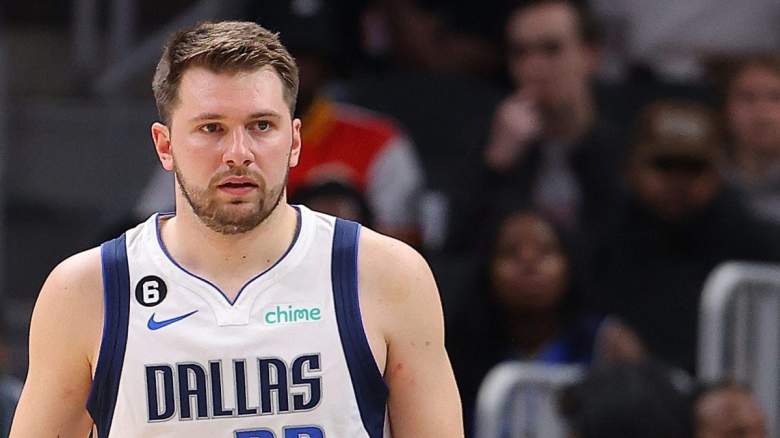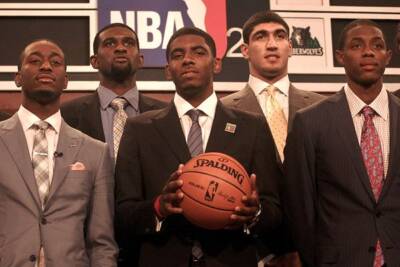In the complex world of professional basketball, the relationship between players and management is crucial for fostering a successful franchise. Nico Harrison, the General Manager of the Dallas Mavericks, has emerged as a pivotal figure in this regard. His unique background, business acumen, and understanding of player dynamics have enabled him to effectively bridge the gap between athletes and upper management. In this article, we will explore Harrison’s journey, his strategies for building trust and communication, and the impact of his role on the Mavericks organization.
The Journey of Nico Harrison

Nico Harrison’s path to becoming an influential executive in the NBA is both inspirational and educational. Raised in a sports-oriented environment, Harrison developed a passion for basketball at an early age. After playing college basketball at the University of Oregon, he transitioned to a career in sports marketing, which provided him with invaluable insights into player management and organizational dynamics.
Before joining the Mavericks, Harrison spent nearly two decades at Nike, where he worked closely with athletes, agents, and coaches. This experience not only honed his skills in negotiation and deal-making but also deepened his understanding of the challenges players face. His transition into the role of General Manager in 2021 marked a significant turning point for the Mavericks, as he was tasked with revitalizing a team that had a blend of young talent and veteran experience.
Building Trust and Communication
One of Harrison’s primary objectives as General Manager is to establish a culture of trust and open communication between players and management. This goal is vital for a franchise like the Mavericks, known for its star players and ambitious aspirations. Here are some strategies Harrison employs to foster this environment:
- Regular One-on-One Meetings: Harrison believes in the importance of personal relationships. By scheduling regular meetings with players, he creates a platform for open dialogue about their needs, concerns, and aspirations.
- Transparency in Decision Making: Transparency is key to building trust. Harrison ensures that players are informed about the team’s strategies and decisions, allowing them to feel valued and included in the process.
- Player-Centric Approach: Understanding that players are not just assets but individuals with unique backgrounds and stories, Harrison tailors his approach to meet their specific needs and help them thrive.
The Role of Data and Analytics
In today’s NBA, data and analytics play a significant role in shaping team strategies and player performance. Harrison recognizes the importance of these tools and incorporates them into his decision-making process. By analyzing performance metrics, player health data, and opposing team strategies, he is better equipped to make informed decisions that benefit both players and the organization.
For instance, during the 2021 NBA Draft, Harrison and his team utilized advanced analytics to identify potential draft picks who would complement the existing roster, ensuring that the Mavericks could maximize their chances of success. This data-driven approach not only aids in player acquisition but also helps in developing tailored training programs that address individual player weaknesses.
Case Study: The Luka Dončić Effect
One of the most significant challenges a General Manager faces is managing star players. Luka Dončić, the Mavericks’ young superstar, is a prime example of how Harrison has successfully navigated this dynamic. Dončić, who joined the Mavericks in 2018, quickly became one of the league’s premier talents. However, with stardom comes pressure and expectations.
Harrison has taken several steps to ensure that Dončić feels supported and empowered:
- Empowering Leadership: By allowing Dončić to have a say in certain team decisions, Harrison fosters a sense of ownership in the player, which can enhance performance on the court.
- Ensuring Adequate Support: Harrison has worked to build a roster that complements Dončić’s skills, bringing in players who can take pressure off him and create a more balanced team dynamic.
- Managing Expectations: Understanding the media scrutiny around Dončić, Harrison has made it a priority to shield him from unnecessary distractions, allowing him to focus on his game.
Fostering a Positive Team Culture

A positive team culture is essential for success in the NBA. Harrison’s leadership style emphasizes collaboration, accountability, and mutual respect. By nurturing a positive environment, he aims to enhance team chemistry and performance. Some key initiatives he has implemented include:
- Team-Building Activities: Harrison organizes regular team-building events that encourage players to bond off the court, fostering stronger relationships and improving on-court synergy.
- Open-Door Policy: Harrison maintains an open-door policy, inviting players to voice their concerns and suggestions, making them feel valued and heard.
- Support for Mental Health: Recognizing the pressures of the sport, Harrison advocates for mental health resources, ensuring that players have access to the support they need to perform at their best.
Impact on Mavericks’ Performance
Since Harrison took over as General Manager, the Mavericks have experienced notable improvements. The synergy between players and management has translated into better performance on the court, reflected in their win-loss record and playoff competitiveness. The following statistics highlight the Mavericks’ growth:
- Increased win percentage: The Mavericks saw a rise in their win percentage from 47% in the 2020-2021 season to over 56% in the 2021-2022 season.
- Player development: Young players like Jalen Brunson and Dorian Finney-Smith have shown marked improvement, contributing significantly to the team’s success.
- Enhanced team morale: Surveys conducted within the team indicate a significant increase in player satisfaction and morale, attributed to Harrison’s management style.
Conclusion: The Future of Team Dynamics in the NBA

Nico Harrison’s approach to bridging the gap between players and management has set a new standard in the NBA. By prioritizing communication, leveraging data, and fostering a positive culture, he has not only improved the Mavericks’ performance but also created an environment where players can thrive both on and off the court. As the league continues to evolve, Harrison’s strategies may serve as a blueprint for other franchises seeking to enhance their organizational dynamics.
In summary, Harrison’s journey from sports marketing to General Manager highlights the importance of understanding both sides of the game. By focusing on trust, data-driven decisions, and player empowerment, he is not just reshaping the Mavericks but also influencing the future of team dynamics in professional basketball.





